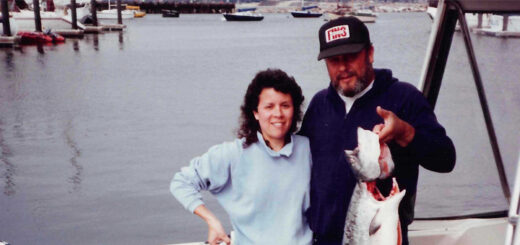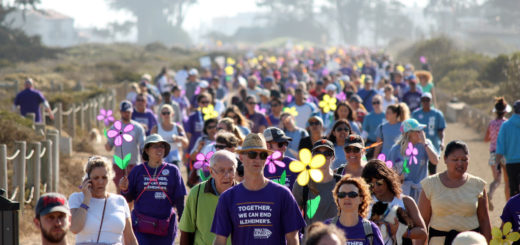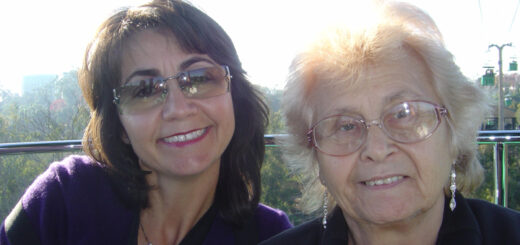Difficult diagnosis leads Bay Area sisters to find the Alzheimer’s Association
When Tuseda Graggs and her sister Stacey Johnson noticed changes in their mother, Willie Mae, they sought medical care. Their mother’s primary care doctor didn’t believe that her memory problems were dementia-related. Refusing to accept this, Tuseda and Stacey continued to search for help and found a caregiver conference hosted by the Alzheimer’s Association. They encouraged other family members to attend. Together they learned valuable information, built a care network and connected with resources that helped their mother get an accurate diagnosis.
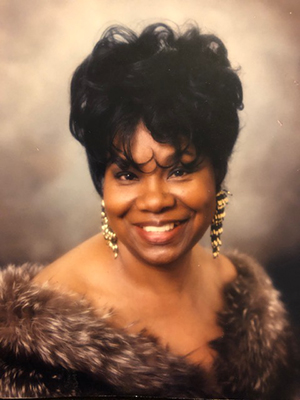
Single mom makes birthdays magical
Willie Mae Johnson was a loving, supportive mother of two who worked as a data recorder operator for the Social Security Administration for 30 years. She was a devout Christian who went to church every Sunday, attended bible study and participated in the choir.
Despite being a single mother, Willie Mae went out of her way to make sure her daughters felt like they were special on their birthdays. Stacey Johnson, Willie Mae’s younger daughter shared “Our birthdays were the major event of the year. She managed to make us feel like princesses on a shoestring budget.
“We have no idea how she did what she did,” said Tuseda, Willie Mae’s oldest daughter. “As a single mother she was on a tight budget, but she still managed to tuck money away.”
Recognizing the warning signs
When Tuseda and Stacey were younger, Willie Mae took care of her mother, who had Alzheimer’s. Because of this, they were quick to recognize the warning signs when their mother’s bills stopped being paid and she started making large donations to her favorite charities.
“Mom was a very generous person who liked to donate to charities,” said Stacey. “I started to notice she was making multiple donations to the same organization in a short period of time, which was unusual for her.”
Tuseda said “Mom was always on top of everything. When late notices started coming in, we knew something was wrong.”
Disagreeing with the doctor
Tuseda took her mom to her doctor. Her primary care physician refused to believe that Willie Mae had Alzheimer’s. The doctor was convinced her other underlying health conditions were causing the memory loss.
“It was really frustrating,” said Tuseda. “While our mom did have other health problems, we felt like this was something more. Her doctor refused to even explore the possibility of Alzheimer’s or dementia.
“I felt like he was reluctant to diagnose her with Alzheimer’s because he didn’t know a lot about the disease. Instead of taking the initiative to learn more about it, he ignored our concerns and insisted he was right.”
Disparities in diagnosis
Sadly, Tuseda and Stacey’s experience is not unusual. While African Americans are about two times more likely than whites to have Alzheimer’s and other dementias, they are only 34% more likely to have a diagnosis. Hispanics are about one and one-half times more likely than whites to have Alzheimer’s and other dementias, but they are only 18% more likely to be diagnosed.
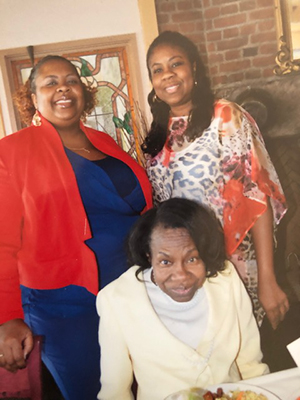
When they are diagnosed, African Americans and Hispanics are typically diagnosed in the later stages of the disease, when they are more cognitively and physically impaired “” and therefore in need of more medical care.
Doing their own research
Unwilling to accept the doctor’s diagnosis, Stacey and Tuseda began doing their own research on Alzheimer’s. They found the Alzheimer’s Association website (alz.org) and learned as much as they could about the disease.
“When our grandmother had Alzheimer’s, we didn’t really dive into understanding the disease,” said Stacey. “With our mom we wanted to know more.”
Eventually Stacey and Tuseda came across the Circle of Care conference offered in the Bay Area and decided to attend. “We invited other people because we felt like it was an opportunity for them to get the information first-hand,” said Stacey. “The conference had breakout sessions so we could split up and learn about the topics we were most interested in. In the end, the conference brought us closer together as a family. We bonded around the care and love for our mom.”
Tuseda adds, “The conference inadvertently created a community for us. We knew we were going to need help and that Stacey and I couldn’t do it alone. We went as a big group and even brought our mom. We had the support of my mom’s sisters, our children, our husbands and, despite being divorced, our dad.”
The benefits of education conferences
In addition to coming together as a family to support each other, Tuseda and Stacey received many other benefits from the event. “We went every year for six or seven years,” said Stacey. “Every year there was something new.
“There are so many valuable resources available we wouldn’t have known about if we hadn’t gone. It will help prepare you for the future and give you an opportunity to talk with other caregivers. I always walked away with a renewed motivation to be organized.”
Tuseda adds, “Some years they focus on research, other years it’s more about caregiving. It’s because of the conference we were able to find a new doctor, one who actually believed us when we said something was wrong. Our new doctor was able to get Mom an official diagnosis.”
Willie Mae was diagnosed with Alzheimer’s in 2008.
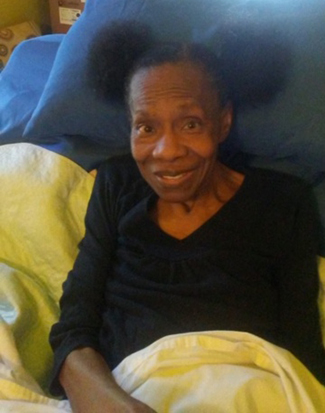
Tips for caregivers
Tuseda and Stacey shared a few tips they learned through their caregiving journey.
- Get connected with the Alzheimer’s Association
Whether you have Alzheimer’s or dementia, are a caregiver, or are supporting someone with the disease, the Alzheimer’s Association website has resources, information and tips that can help you. Tuseda says “There is a wealth of knowledge on the website and it’s a great resource.” You can also call the Alzheimer’s Association 24/7 Helpline (800.272.3900) to speak with a trained specialist. The Helpline is available around the clock, 365 days a year. - Establish a support system
Caring for someone with Alzheimer’s can be overwhelming, which is why it is important to have a support network to care for your own well-being. “Who is it in your family or friends that can be part of the village that helps you maneuver this journey,” asks Tuseda “Having a support system is crucial.” Additionally, the Alzheimer’s Association offers support groups (currently online and by phone) that allow caregivers to connect with other caregivers going through similar situations. - Evaluate your finances
Putting financial and legal plans in place early allows the person with dementia to express wishes for future care and decisions. It also allows time to work through complex issues involved in long-term care. Putting financial plans in place as soon as the diagnosis has been made can help you secure your financial future. Stacey suggests, “Take a good look at what financial options you have available; at some point you will need it.” - Don’t give up
There is no single diagnostic test that can determine if a person has Alzheimer’s disease. Physicians (often with the help of specialists such as neurologists, neuropsychologists, geriatricians and geriatric psychiatrists) use a variety of approaches and tools to help make a diagnosis. Tuseda says, “Getting a diagnosis might be hard, but you can’t give up. You may have to push in order to help your loved one.”
Best chance for a cure
Clinical trials are research studies conducted in people to determine whether treatments are safe and effective. Without clinical research and the help of human volunteers, there can be no effective treatments, prevention strategies or cure for Alzheimer’s disease.
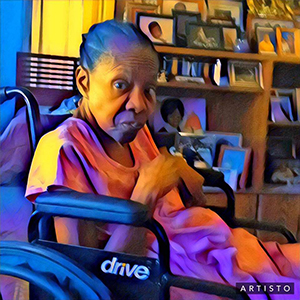
Willie Mae’s new doctor encouraged her to participate in clinical trials. “Once we had a diagnosis, we felt comfortable letting mom participate in some trials,” said Tuseda. “We picked ones that didn’t seem harmful.
“There was one where she drank something like a milkshake and mom loved sweets, so this was an easy one. We had conversations with mom about the trials, so she could be part of the decision-making process.”
Stacey adds, “Clinical trials are the best chance for a cure. We were at the point where mom had been diagnosed with Alzheimer’s. The worst-case scenario was she remains the same. However, with the trial, there is a possibility it could help her do better.”
Tuseda encourages people to participate in clinical trials. “If participating in clinical trials is the way we can find something that will help with this disease, then I hope people will try it. We have to find an answer.”
Giving back
Willie Mae died in November 2019 and, as a way to honor their mother and help support caregivers, they created the Willie Mae Legacy Foundation (WillieMaesLegacy.org). The goal of the foundation is to help caregivers get a much-needed break.
“Every caregiver needs a break,” said Stacey. “We learned about it at Circle of Care and experienced it personally. Now that we’re on the other side, we want to help people who are in the same situation we were in. We want caregivers to be able to have a moment for themselves.”
Tuseda and Stacey are also fundraising for the Alzheimer’s Association. They created teams for both The Longest Day® and Walk to End Alzheimer’s®. “We created a team and I put the link on my Facebook page,” said Stacey. “Before I knew it a sorority sister had already donated. It was so easy to get started.”
For more information on Alzheimer’s and all other dementia, as well as education classes, support groups, and education conferences visit our website at alz.org. For 24/7 support with a trained specialist, please contact the Alzheimer’s Association 24/7 Helpline at 800.272.3900
Learn more:





